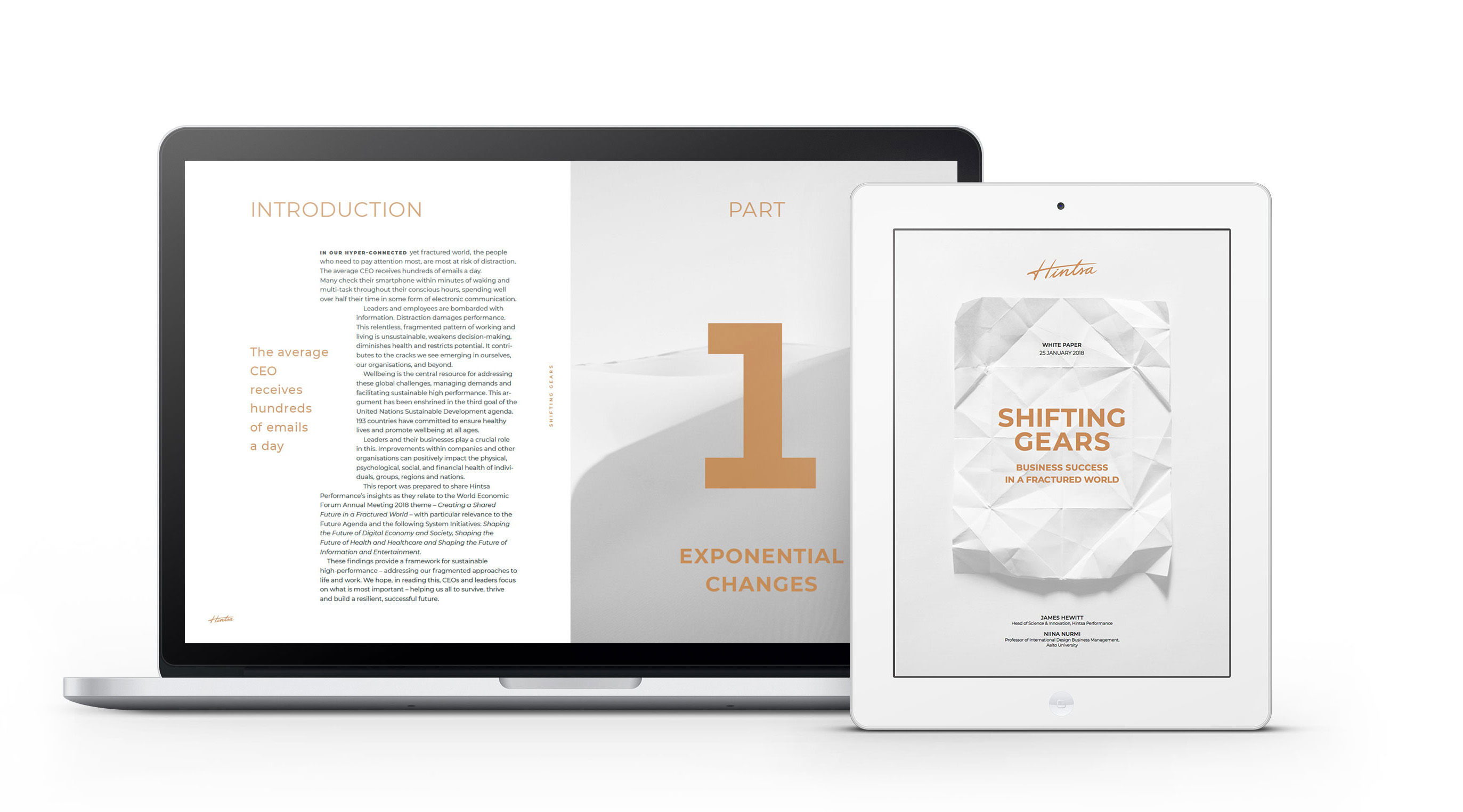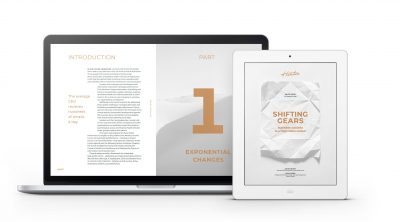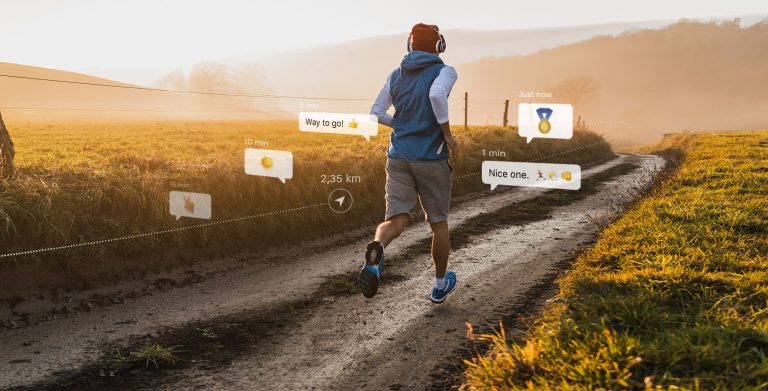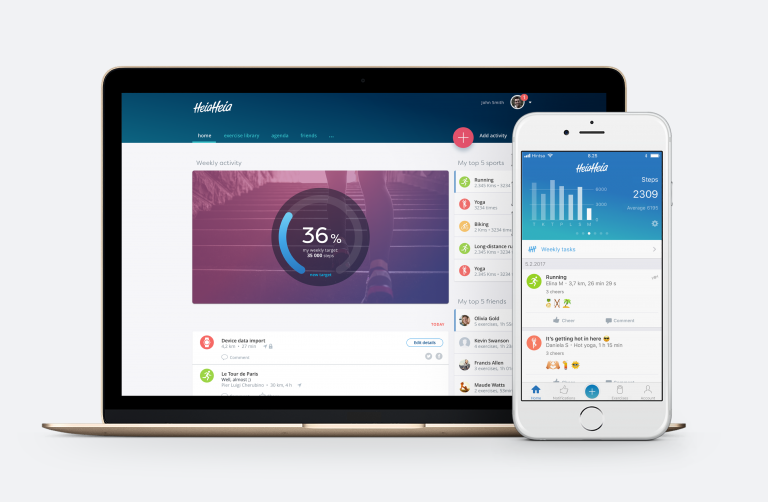Shifting Gears: Business Success in a Fractured World

Our new white paper, released at the 2018 World Economic Forum, reveals how businesses can succeed in a distracted world – and it all starts at the top. Read the following summary and make sure to download your copy of the entire report.
A new framework
In its white paper, ‘Shifting Gears: Business Success in a Fractured World’, Hintsa Performance reveals a new framework for business performance, success and personal development. The paper sets out the challenges of a ‘fractured world’, where CEOs and business leaders are constantly distracted; checking hundreds of emails a day, and switching between tasks.
It also builds the case for a new approach to work and leadership, distilling the essence of the Hintsa Performance philosophy and the latest academic research. Hintsa has worked with Formula 1 drivers and teams since 1998. However, for much of the last decade, it has focused increasingly on enhancing business performance with health and wellbeing strategies.
“Sports people and coaches recognise that it’s essential to proactively plan effort; scheduling periods of hard work, and times for rest and recovery,” says James Hewitt, Hintsa Performance Head of Science and Innovation. “This ensures the athlete continues to improvie, and achieve more of their potential. We can learn from this approach in the world of business. To avoid living in a continual reactive and distracted state, we must start considering how we distribute our effort, and elevate purpose over ‘presenteeism’.”
Cognitive gears
Business leaders need clear boundaries – distinct periods of distraction-free concentration followed by times of lower-intensity work, rest and reflection. The white paper introduces a novel framework: ‘cognitive gears’. This framework enables leaders to identify the key components that place demands on the brain, and to better distribute their cognitive work.
Just as racing drivers need to move through the gears, those wanting to succeed in the information economy must learn to recognise and use their cognitive gears. These range from ‘low gear’ periods (relaxation and recovery) to ‘high gear’ moments (for focused and demanding work). It also involves reducing time in ‘medium gear’ (distracted, rapid switching between many tasks), which characterises the waking lives of many leaders and employees.
“There is no such thing as a ‘work-life balance’ any more. Only life. If we are to thrive in this hyper-connected and fast-paced world, we need to design better ways of living and working,” says James. “Emerging evidence and new frameworks provide the insights needed to improve wellbeing and achieve sustainable high performance.”
Quality over quantity
In business and sport, people need to prioritize quality of work over quantity of effort. Relentless distraction causes many to feel they are working more but achieving less. Physical health must also have equal priority with mental wellbeing.
“Global average lifespan doubled in 100 years, but while we’re living longer, we’re living ‘sicker’,” says James. “The decoupling of physical capacity from many of our daily activities means we’re often only aware of our body when something starts to go wrong. We need to take proactive steps to enable people to maximise their health-spans, not just their life-spans – squeezing poor health into as brief a period as possible at the end of life. Most people would like to die young as late as possible – and some strong evidence points the way to helping us achieve that.”

The paper also explains the need to create conditions for teams to succeed. Creativity thrives with some pressure and when people combine as a ‘neural network’ rather than a collection of individuals. This is essential for solving the challenges of our fractured world.
The future of work
As Artificial Intelligence (AI) continues advancing rapidly, these issues will only become more acute. AI will make some jobs redundant, and others more complex and challenging, as humans work with increasingly sophisticated systems. However, other jobs will simply become more boring. These changes offer fresh opportunities but also new risks for the health and wellbeing of employees.
“In the ‘future of work’, what can be automated probably will be,” says James. “We will not be able to ‘out-hustle’ the robots who never sleep or get sick. We need to stop pretending we are machines, and start nurturing our human qualities to differentiate ourselves and solve the biggest problems. Just working hard will not be enough. We need to develop the capacities that are difficult to automate: our creativity, collaboration, complex problem solving, and ability to work with increasingly sophisticated systems. These require a healthy, well-rested, energetic and inspired workforce.”
Digital solutions
Technology, while creating a world of ‘fragmented attention’, can also provide some of the answers. Hintsa Performance’s experience of working with large, complex organisations, reveals how smart digital interventions over long time periods increase individual, team and company performance.
To download your copy of the white paper, click here.
For media-related queries and interviews, please contact Manuela Andaloro on +41 78 747 91 59 or manuela.andaloro@smartbizhub.com
For further case studies and a copy of the report, please contact Kai Kirkkopelto on +358 40 9657 235 or kai.kirkkopelto@hintsa.com


